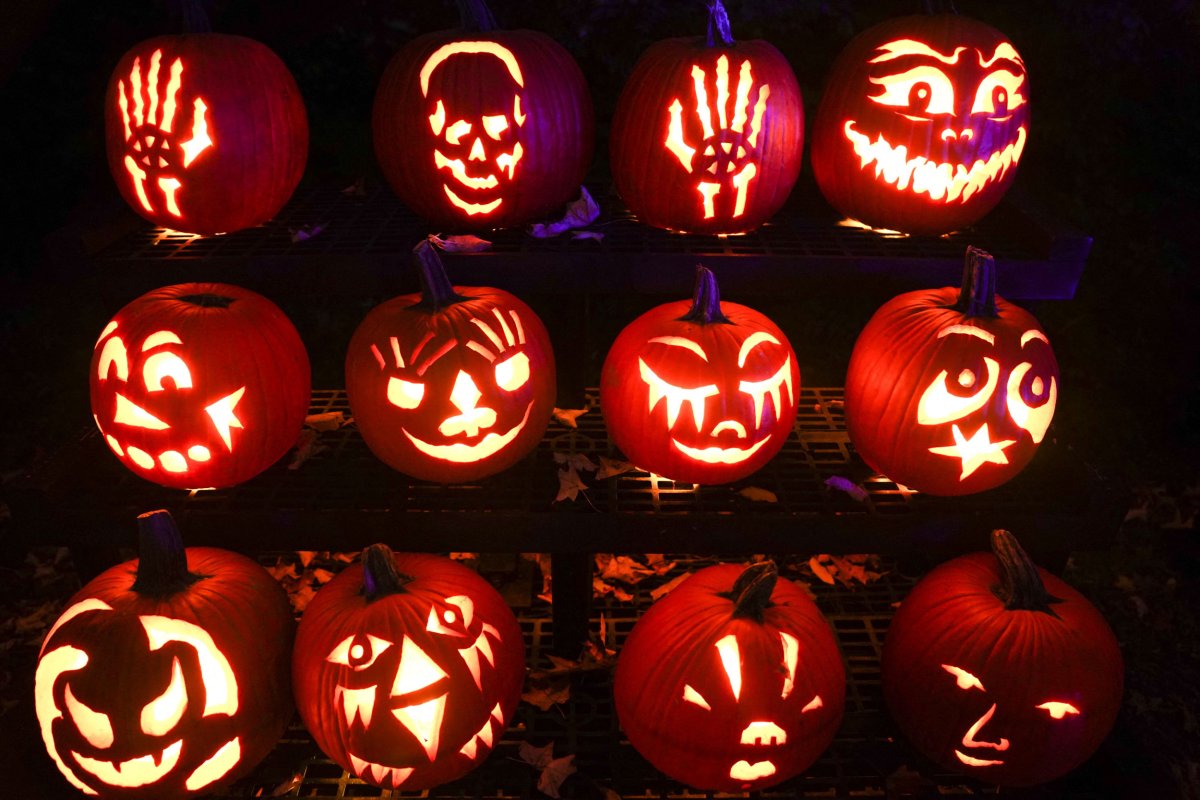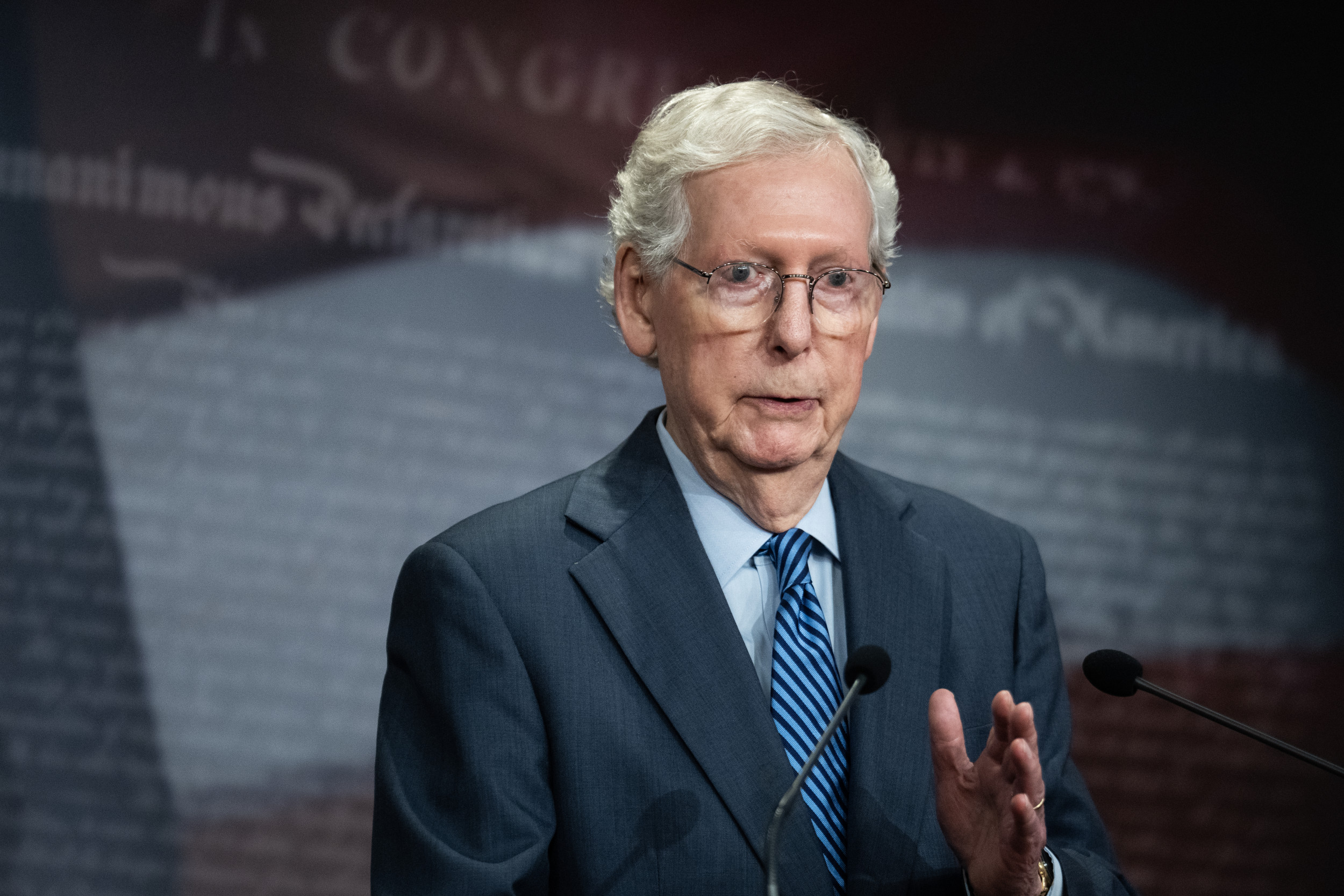October 31 marks Halloween, the spooky holiday that has grown in popularity in recent years.
Millions of people celebrate Halloween each year, but many of them don't know the intriguing history behind the holiday.
Lisa Morton, an author who has written three books on the origin of the festival, including the award-winning Trick or Treat: A History of Halloween, told Newsweek that Halloween began around the fifth century A.D. when Christian missionaries tried to convert the Irish Celts, who celebrated their year-end festival Samhain ("sow-in") at the end of October each year.
"Samhain (the literal translation is "summer's end") was a time of borders—between years, between seasons, and between our world and the Otherworld, where malicious creatures called the sidh (pronounced "she") lived, but could cross over on Samhain night into our world and create all kinds of supernatural havoc," Morton told Newsweek.
The Celts told spooky stories about the sidh on Samhain, and that's likely where Halloween got its macabre side from since the holiday the Catholic Church moved from May 13 to November 1 was known as All Saints' Day, she said.
Halloween was celebrated mainly by the Celts' descendants — the Irish and the Scottish — for centuries, and when immigrants from those countries came to America in the 1840s, fleeing famine in their homeland, they brought the spooky celebration with them.
Many changes occurred to the celebrations to fit their new environment, Gregory Darwin, a senior lecturer in Irish and Celtic history at Uppsala University in Sweden, told Newsweek. Turnip lanterns became the familiar pumpkin Jack O' Lantern for example.
But the holiday wasn't widely celebrated until Americans began throwing Halloween-themed parties in the later 19th century. "It caught on in the U.S., where it was celebrated mainly with parties and playing mischievous pranks, usually perpetrated by kids. By the 1930s the prank-playing had moved into cities, was causing millions of dollars in damage, and trick or treat came about as a way to buy off these little vandals...and it worked," Morton added.
In the early middle ages, when the Irish first began to record their own history and legends in the vernacular they already had an idea of Samhain as a transitional time of year.
The festival was considered a time for feasts and assemblies but also when the dead were prone to be restless.
"As a late autumn festival, it was a time to enjoy some of the fruits of the harvest, such as apples, berries, and nuts, as well as to take stock of and slaughter livestock. It was also a time for gatherings, bonfires, games, and fortune-telling. It also had a sinister aspect, as the spirits of the dead were believed to wander," Darwin said.
He has a different theory from Morton about the introduction of trick-or-treating.

"People would leave offerings of food, and light candles or lanterns to attract the spirits of friends and family... and to keep away less welcome guests," he said. "Mumming and guising were also parts of the celebration – dressing up in bizarre costumes, going door to door, and asking neighbors for food or drink, perhaps in return for a blessing or a song. If the guisers didn't get a welcome reception, mischief might result – a mask gives you a license to act out and misbehave."
What does Halloween celebrate?
Lesley Bannatyne, another author who writes extensively on Halloween, told Newsweek that Halloween appealed to the wider public for several reasons. The first being that it involved the supernatural, and Americans were fascinated by ghosts at that time – the massive death toll of the Civil War spurred much of this interest and in the same time period, seances became popular.
Halloween was also seen as rural and exotic, she said. Many hostesses read about Halloween in magazines that came about during the late 19th century. It was depicted as a country holiday, and there was a renewed interest in old-world folkways.
As the 1900s progressed, Halloween became a town-wide, community event, with parades and parties and costumes for both children and adults. Victorian Americans loved themed parties.
"Mid-century brought trick or treating and a focus on children, and at the end of the 20th century, a return of adults to the celebration," Bannatyne added.
Halloween doesn't celebrate just one thing, Lesley Bannatyne said.
"If you ask 10 people what Halloween celebrates, you might get 10 answers: creativity, freedom, candy, spookiness, imagination, community, generosity (when else do we open our doors to strangers and give them food?).
"In the early 20th century, Halloween was partly about all the new immigrants to this country - many holidays were used as a way to get everyone on the same page. In the mid-20th, it was about all those post-war kids."
Halloween is like a carnival and the regular order is upended.
"Kids demand candy from adults, women wear Mario Brothers' mustaches and grown men dress as Marshmallow Peeps. There's something about its otherworldliness that gives Halloween a tinge of magic," she added.
For over 1,000 years, Halloween has been focused on the spirit world and in the northern hemisphere—where much of it is celebrated—it is the last large outdoor festivity before the darkness and cold of winter arrives.
What Time Does Trick or Treating Start on Halloween?
"Trick or Treating usually happens on the evening of October 31, shortly after the sun has begun to set, although parents with younger children often take them out a little earlier," Darwin said.
But because Halloween falls on a Monday this year, many festivities will take place over the previous weekend, so that adults can have fun and stay out late without worrying about work the next day.
Morton said the answer to that question can vary widely from one neighborhood to the next.
"Some areas will only celebrate trick or treat on a particular day of the week, often the Saturday closest to the actual holiday. In some areas, it's done before sunset (think E.T., probably the first major media representation of daytime trick-or-treating), but in most places, it starts once the sun goes down on Halloween...which, by the way, is also when the Celts began their Samhain celebrations."
Paranormal activities
Dr. Brian Sterling-Vete, founder of Paranormal Rescue.com, and author of "Paranormal Investigation - The Black Book of Scientific Ghost Hunting", told Newsweek his team at Paranormal Rescue.com receives many calls this time of year from families that have "dabbling into the mysteries of the paranormal by using Ouija boards, general divination, and paranormal investigations."
"Some of the foolhardier even attempt to conjure spirits, elementals, and even demons," he said. "The problem is that these people can suddenly find that they have plunged themselves and their families into a terrifying nightmare of physical and mental danger and torment, and they have no idea how to make it all stop and get life back to normal again."
Paranormal Rescue first began as a "scientific research project" but expanded as a team as Sterling-Vete received many calls from people who said they had encountered the supernatural.
"This surge was partly driven because at Halloween and in the darker months that follow people are much more tempted to dabble in the paranormal as they search for thrills by using Ouija boards, divination, and conjuring," he said.
Correction 11/11/22 at 03:52 a.m. ET: This article incorrectly attributed a quote to Lisa Morton. This has been changed to Lesley Bannatyne.
Uncommon Knowledge
Newsweek is committed to challenging conventional wisdom and finding connections in the search for common ground.
Newsweek is committed to challenging conventional wisdom and finding connections in the search for common ground.
About the writer
Jack Dutton is a Newsweek Reporter based in Cape Town, South Africa. His focus is reporting on global politics and ... Read more
To read how Newsweek uses AI as a newsroom tool, Click here.








